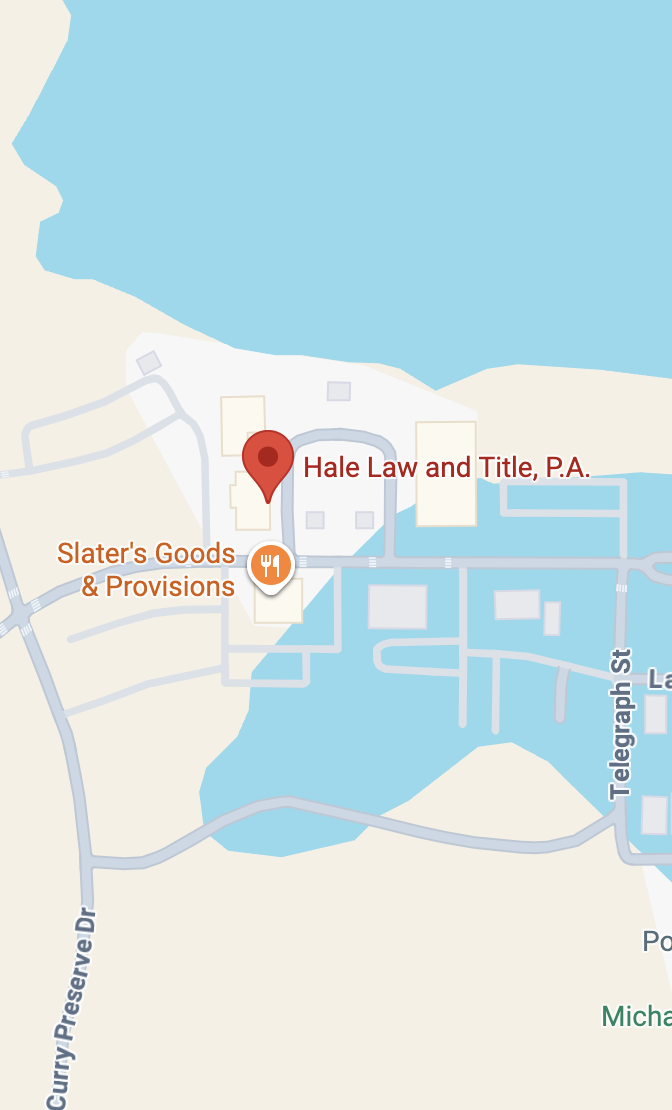Are you considering purchasing real estate in the beautiful Sunshine State of Florida? With its stunning beaches, vibrant cities, and favorable tax laws, it's no wonder that Florida is a top destination for real estate investment. However, navigating the state's unique laws and regulations can be a daunting task. That's where we come in. In this article, we will demystify the real estate landscape in Florida and help you understand the main law that governs property transactions in the state. Whether you're a first-time buyer or an experienced investor, this guide will provide you with the knowledge and insights you need to make informed decisions and maximize your real estate opportunities in Florida. So, let's dive in and explore the world of Florida real estate together!
Understanding Florida's main real estate law
Florida's real estate market is governed by a comprehensive set of laws and regulations designed to protect both buyers and sellers. The main law that governs property transactions in the state is the Florida Real Estate Settlement Procedures Act (RESPA). RESPA is a federal law that aims to promote transparency and fairness in real estate transactions by requiring certain disclosures and prohibiting certain practices. It applies to most residential real estate transactions, including the sale of houses, condominiums, and cooperative units.
Under RESPA, buyers and sellers are entitled to receive various disclosures, including the Good Faith Estimate (GFE) and the HUD-1 Settlement Statement. The GFE provides an estimate of the closing costs and other expenses associated with the transaction, while the HUD-1 Settlement Statement provides a detailed breakdown of the actual costs incurred at closing. These disclosures help buyers and sellers understand the financial implications of the transaction and ensure that they are not surprised by any hidden fees or charges.
In addition to RESPA, there are other laws and regulations that govern specific aspects of real estate transactions in Florida. For example, the Florida Condominium Act regulates the sale and management of condominium units, while the Florida Landlord-Tenant Act governs the rights and responsibilities of landlords and tenants. It's important to familiarize yourself with these laws and regulations to ensure a smooth and successful real estate transaction in Florida.
The Florida Real Estate Commission (FREC)
To regulate the real estate industry in Florida, the state has established the Florida Real Estate Commission (FREC). FREC is responsible for licensing and regulating real estate brokers and sales associates in the state. It sets the standards for licensure, conducts examinations, and investigates complaints against licensees.
To become a licensed real estate professional in Florida, individuals must meet certain requirements set by FREC. These requirements include completing a pre-licensing course, passing a state exam, and submitting an application for licensure. Once licensed, real estate professionals must adhere to a code of ethics and continuing education requirements to maintain their license.
FREC plays a crucial role in ensuring the integrity of the real estate industry in Florida. By licensing and regulating real estate professionals, it helps protect consumers and maintain high standards of professionalism and ethics in the industry.
Key terms to know in Florida real estate law
When dealing with real estate in Florida, it's important to familiarize yourself with some key terms and concepts. Here are a few that you should know:
Deed: A legal document that transfers ownership of a property from one party to another.
Title: The legal right to ownership of a property.
Escrow: A neutral third party that holds funds and documents during a real estate transaction, ensuring that all conditions of the sale are met before the funds are released.
Closing: The final stage of a real estate transaction where ownership of the property is transferred from the seller to the buyer.
Earnest money: A deposit made by a buyer to show their seriousness and commitment to the transaction.
Mortgage: A loan used to finance the purchase of a property, with the property itself serving as collateral for the loan.
Foreclosure: The legal process by which a lender takes possession of a property when the borrower fails to make mortgage payments.
Understanding these key terms will help you navigate the real estate process in Florida and communicate effectively with real estate professionals and other parties involved in the transaction.
Licensing requirements for real estate professionals in Florida
If you're considering a career in real estate in Florida, it's important to understand the licensing requirements set by FREC. To become a licensed real estate sales associate, you must complete a 63-hour pre-licensing course approved by FREC, pass a state exam, and submit an application for licensure. Once licensed, you must work under the supervision of a licensed real estate broker.
To become a licensed real estate broker in Florida, you must have at least 24 months of active real estate experience during the preceding five years, complete a 72-hour broker pre-licensing course approved by FREC, pass a state exam, and submit an application for licensure.
Continuing education is also a requirement for both sales associates and brokers in Florida. Sales associates must complete 14 hours of continuing education every two years, while brokers must complete 28 hours of continuing education every two years.
By establishing these licensing requirements, FREC ensures that real estate professionals in Florida are well-trained and knowledgeable, providing a high level of service to buyers and sellers.
Common legal issues in Florida real estate
Like any other state, Florida has its share of common legal issues that can arise in real estate transactions. Some of the most common legal issues in Florida real estate include:
Title issues: Disputes over the ownership or validity of a property's title can create significant legal challenges. It's important to conduct a thorough title search and obtain title insurance to protect against any potential issues.
Boundary disputes: Disputes over property boundaries can arise when neighboring property owners disagree on the location of the boundary lines. Resolving these disputes may require the assistance of a surveyor or legal professional.
Contract disputes: Disagreements over the terms of a real estate contract, such as the purchase price or the inclusion of certain items, can lead to legal disputes. It's important to have a clear and comprehensive contract that addresses all relevant terms and conditions.
Zoning and land use issues: Restrictions on the use of a property imposed by local zoning laws or homeowners' associations can impact the value and potential uses of a property. It's important to understand the applicable zoning regulations and any restrictions before purchasing a property.
Disclosure disputes: Sellers have a legal obligation to disclose certain defects or issues with the property to buyers. Failure to disclose can lead to legal action if the buyer discovers the issue after closing.
It's important to work with a qualified real estate attorney who can help you navigate these legal issues and protect your interests in a real estate transaction.
Important considerations for buyers and sellers in Florida
If you're buying or selling real estate in Florida, there are several important considerations to keep in mind:
Location: Florida is a large and diverse state, and the location of a property can have a significant impact on its value and desirability. Consider factors such as proximity to beaches, schools, and amenities when choosing a property.
Financing: Before making an offer on a property, it's important to get pre-approved for a mortgage or have proof of funds if you're buying with cash. This will help you determine your budget and make your offer more attractive to sellers.
Inspections: It's essential to have a thorough inspection of the property conducted by a qualified professional. This will help identify any potential issues or defects that may affect the value or safety of the property.
Insurance: Florida is prone to natural disasters such as hurricanes, so it's important to obtain the appropriate insurance coverage for your property. This may include homeowners' insurance, flood insurance, and windstorm insurance.
Closing costs: Buyers and sellers should be aware of the closing costs associated with a real estate transaction. These can include fees for title searches, inspections, appraisals, and legal services. It's important to budget for these costs and negotiate who will be responsible for paying them.
By considering these important factors, buyers and sellers can make informed decisions and ensure a smooth and successful real estate transaction in Florida.
How to navigate the Florida real estate market
Navigating the Florida real estate market requires a strategic approach and careful consideration of market trends and conditions. Here are some tips to help you navigate the market:
Research: Before diving into the market, conduct thorough research on the areas you're interested in. Consider factors such as property values, rental demand, and future development plans.
Work with a real estate professional: Having a knowledgeable and experienced real estate agent on your side can be invaluable. They can provide insights into the local market, help you find properties that meet your criteria, and negotiate on your behalf.
Get pre-approved for a mortgage: If you're planning to finance your purchase, getting pre-approved for a mortgage will give you a better idea of your budget and make your offer more attractive to sellers.
Be prepared to act quickly: The Florida real estate market can be competitive, especially in desirable areas. Be prepared to act quickly when you find a property you're interested in, as it may not stay on the market for long.
Consider long-term investment: Florida's real estate market offers great potential for long-term investment. Consider factors such as population growth, job opportunities, and infrastructure development when evaluating investment opportunities.
By following these tips and working with professionals who are familiar with the Florida real estate market, you can navigate the market with confidence and maximize your investment opportunities.
Resources for further understanding Florida's real estate law
If you're interested in learning more about Florida's real estate law, there are several resources available to help you deepen your understanding:
Florida Statutes: The Florida Statutes contain the laws and regulations that govern real estate transactions in the state. They can be accessed online and are a valuable resource for understanding the legal framework.
Florida Real Estate Commission (FREC): FREC's website provides information on licensing requirements, educational resources, and consumer protection. It's a great place to start if you're interested in becoming a licensed real estate professional or understanding the regulations that govern the industry.
Real estate attorneys: Consulting with a real estate attorney can provide you with personalized advice and guidance based on your specific situation. They can help you navigate the legal complexities of real estate transactions and protect your interests.
Local real estate associations: Local real estate associations in Florida, such as the Florida Realtors and local Realtor boards, offer educational resources, networking opportunities, and market insights. They can provide valuable support and guidance throughout your real estate journey.
By taking advantage of these resources, you can deepen your understanding of Florida's real estate law and make more informed decisions in your real estate transactions.
Conclusion
Purchasing real estate in Florida can be a rewarding and lucrative endeavor, but it's important to understand the state's unique laws and regulations. By familiarizing yourself with the main law that governs property transactions in Florida, understanding the role of the Florida Real Estate Commission, and being aware of common legal issues, you can navigate the real estate landscape with confidence. Whether you're a buyer, seller, or aspiring real estate professional, the knowledge and insights gained from this guide will help you make informed decisions and maximize your real estate opportunities in the beautiful Sunshine State of Florida. So, go ahead and dive into the world of Florida real estate - the sunshine and opportunities await!


